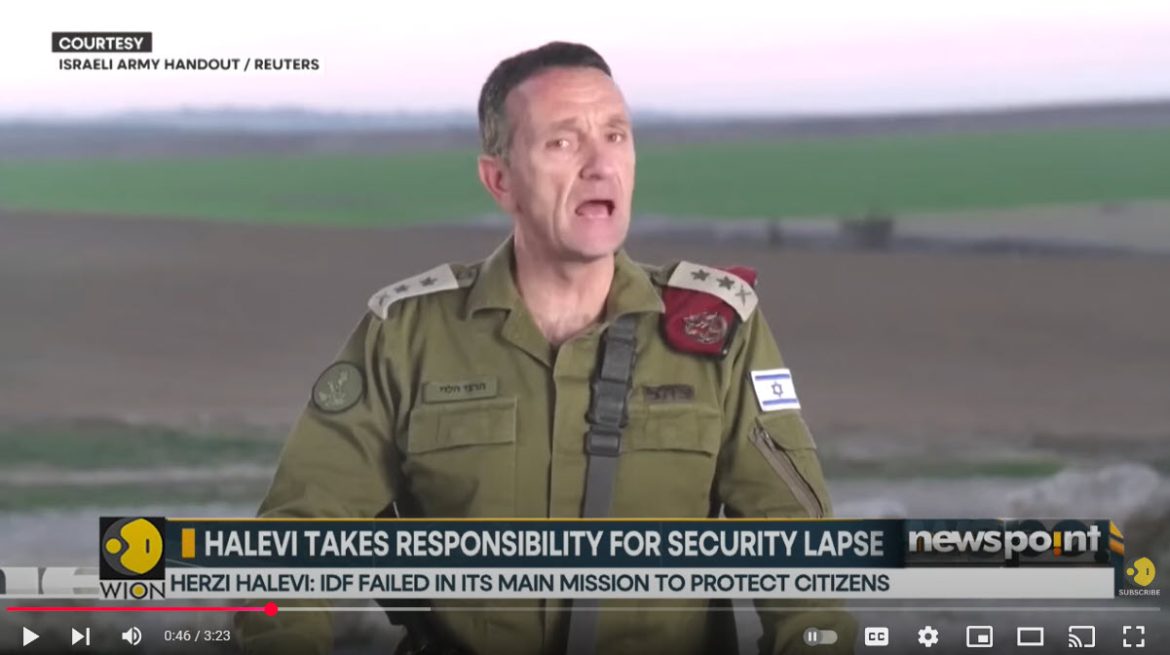Lieutenant General Herzi Halevi, the Chief of Staff of the Israel Defense Forces (IDF), has announced his resignation, effective March 2025, citing his responsibility for the military’s failure to prevent the devastating October 7, 2023, Hamas-led attack. In his resignation letter addressed to Israeli officials, Halevi admitted the shortcomings of the IDF in protecting the nation during the unprecedented assault, which left approximately 1,200 Israelis dead and many others taken hostage.
The October 7 attack, coordinated by Hamas militants, saw armed fighters breaching Israel’s defenses, including the heavily fortified Gaza border, and infiltrating civilian areas. This marked one of the darkest days in Israel’s recent history, shaking public confidence in the military’s preparedness and security protocols. Halevi’s departure is the most high-profile resignation of an Israeli official connected to the attack and highlights the growing demand for accountability within the country’s leadership.
Calls for Broader Accountability
The resignation of Halevi has not quelled public discontent. Many Israelis are directing their frustration at Prime Minister Benjamin Netanyahu, calling for his resignation over perceived failures in leadership leading up to the October 7 events. Demonstrations have intensified, with opposition leaders and citizens criticizing the government for a lack of foresight and preparedness. Netanyahu, however, has dismissed these calls, emphasizing that the focus must remain on national security and ongoing military operations.
Escalation in Jenin Refugee Camp
As Halevi’s resignation makes headlines, the Israeli government has launched a large-scale military operation in the Jenin refugee camp in the occupied West Bank. The operation, codenamed “Iron Wall,” aims to dismantle what Israeli authorities describe as a hub for militant activities. The IDF has deployed airstrikes, drones, and ground forces to target armed factions within the camp.
Palestinian health officials report at least ten fatalities and over forty injuries as a result of the operation. The Israeli forces have also surrounded a major hospital in Jenin, restricting the movement of medical staff and patients, which has drawn sharp criticism from international human rights organizations. The United Nations Secretary-General has issued a statement urging Israel to exercise “maximum restraint” and ensure the protection of civilians during the ongoing military action.
Despite these concerns, Prime Minister Netanyahu has defended the operation, describing it as essential to “eradicate terrorism at its source.” According to Israeli intelligence, Jenin has served as a launching point for several attacks against Israeli citizens in recent months.
Fragile Ceasefire and Regional Implications
The developments in Jenin come amid a fragile ceasefire between Israel and Hamas in Gaza. The truce, brokered with the help of international mediators, has allowed for the exchange of hostages and the delivery of humanitarian aid to Gaza’s besieged population. However, the escalation in the West Bank risks reigniting broader regional tensions and undermining the tenuous ceasefire agreement.
Halevi’s resignation and the simultaneous escalation in Jenin underscore the complexities of Israel’s current security situation. While the government claims significant progress in restoring deterrence since the October 7 attack, critics argue that the nation’s leadership remains mired in crisis, with long-term stability still out of reach.
Selecting a Successor
Defense Minister Israel Katz has begun the process of selecting Halevi’s successor. Three senior generals are reportedly under consideration for the role, each bringing distinct strategic visions for the IDF’s future. The new chief of staff will inherit a challenging landscape marked by ongoing security threats, public scrutiny, and the need to rebuild trust within the military ranks.
As Israel navigates these turbulent times, the ripple effects of Halevi’s resignation and the unfolding situation in Jenin will continue to shape the nation’s political and security dynamics. The international community is watching closely, with growing concerns over the potential for further escalation and its impact on regional stability.



